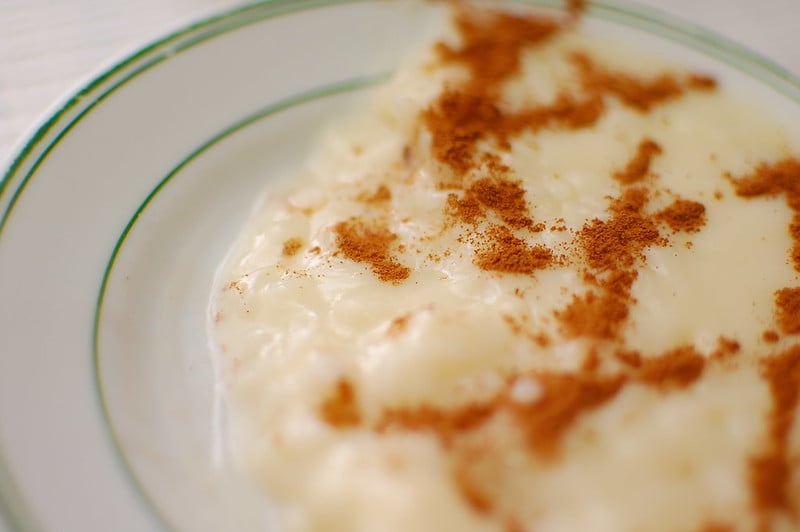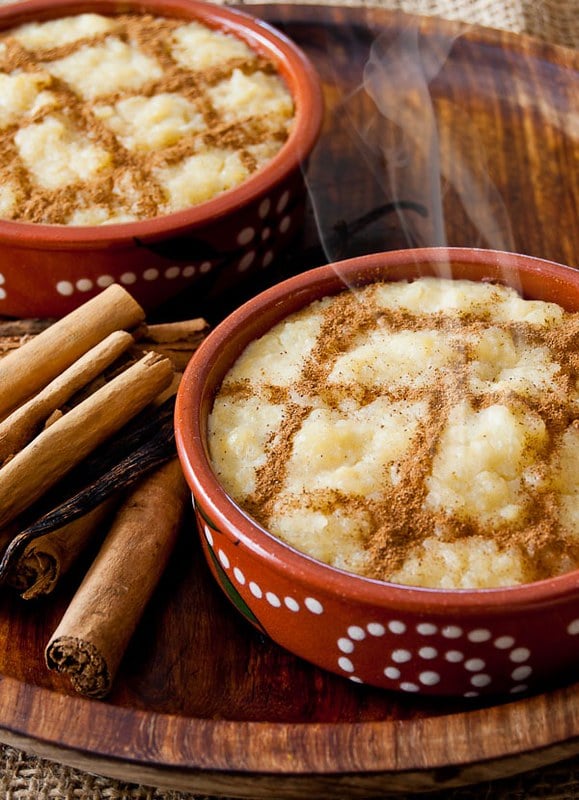What is arroz doce?
Arroz doce, or Portuguese rice pudding or sweet rice, is a staple dessert in Portugal, embodying the essence of warm and simple comfort food. But what exactly is arroz doce? It’s a creamy, sweet rice pudding, often infused with the subtle flavors of lemon and cinnamon.
Like many traditional Portuguese dishes, arroz doce is deeply rooted in the country’s culinary history, with variations found in every region. A common element across these variations is the use of simple ingredients like rice, milk, sugar, and eggs, turning them into a dish that’s both modest yet also luxurious.

Arroz Doce, the Classic Portuguese Rice Pudding Recipe
6-8 Portions
Ingredients
- 1 cup short-grain white rice
- 4 cups whole milk
- 1 cup granulated sugar
- A pinch of salt
- Lemon peel from one lemon
- 1 cinnamon stick
- 3 egg yolks, beaten
- Ground cinnamon for garnish
Instructions
- Begin by rinsing the rice under cold water. In a large saucepan, combine the rice, 4 cups of milk, lemon peel, cinnamon stick, and a pinch of salt. Cook over medium heat, stirring occasionally, until the rice is tender and the mixture has thickened.
- Once the rice is cooked, add sugar and cook for an additional 5-10 minutes, stirring continuously. The mixture should have a creamy consistency.
- In a separate bowl, beat the egg yolks. Gradually add a cup of the hot rice mixture to the yolks, stirring constantly to temper them. Then, slowly pour the yolk mixture back into the saucepan, stirring continuously.
- Cook the mixture over low heat for a few more minutes until it thickens slightly. Be careful not to let it boil.
- Remove the lemon peel and cinnamon stick. Pour the arroz doce into a serving dish or individual bowls. Let it cool slightly, then sprinkle the top with ground cinnamon for garnish.
- Allow the arroz doce to cool down, then refrigerate it for a few hours before serving.
Resist the temptation to eat it all by yourself. You can also find arroz doce as one of the traditional Portuguese flavors offered at ice cream shops in tourist areas such as Sintra and Lagos. Keep your eyes open for it, but there is nothing like a freshly made arroz doce.


